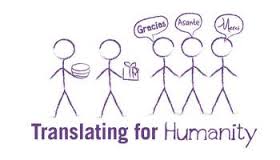The implementation of the EU–Turkey deal of March 20th is being closely watched by all parties involved. But what are the latest updates and which organisations are helping out refugees with the language issues they face?
Chief correspondent Gavin Hewitt in an article for the BBC on 10 May 2016 summarised the key points of the deal:
“Key points of Turkey–EU agreement:
- Returns: All “irregular migrants” crossing from Turkey into Greece from 20 March will be sent back. Each arrival will be individually assessed by the Greek authorities.
- One-for-one: For each Syrian returned to Turkey, a Syrian migrant will be resettled in the EU. Priority will be given to those who have not tried to illegally enter the EU, and the number is capped at 72,000.
- Visa restrictions: Turkish nationals should have access to the Schengen passport-free zone by June. This will not apply to non-Schengen countries, such as Britain. Turkey must meet certain criteria.
- Financial aid: The EU is to speed up the allocation of €3bn (£2.3bn) in aid to Turkey to help migrants.
Turkey EU membership: Both sides agreed to “re-energise” Turkey’s bid to join the European bloc, with talks due by July.”
Additionally, it was reported in the article “The EU Provides Additional 110 Million Euros in Aid To Turkey For Refugees”:
“60 million euros will be channelled in a special programme, implemented through a direct agreement with the Turkish Ministry of the Interior, which will cover the expenses for food, health care and shelter of migrants who have been returned from Greece to Turkey. The funds will cover these costs for a six month period.
50 million euros will address the needs of Syrian refugees in Turkey. Activities under this funding will include:
• Food assistance and essential supplies through the use of voucher schemes
• Access to health services
• Education in emergencies
• Protection
• Essential items for winter
• Specialised help for persons with disabilities, mental health and psychosocial support.”
(Source newsthatmoves.org, April 21, 2016)
However, there was no mention of interpreters or translators, despite these so badly being needed to communicate with the newly arrived refugees. Luckily, several language organisations have volunteered to help overcome the various communication problems.
Among the various organisations, TWB, always quickly to present solutions when it comes to translation matters, were quick to step in to help. The following video shows how they are actively involved:
Now they are looking into different tools that could help bridge the linguistic gaps.
Another organisation, News That Moves, among other services, has set up a page on how to use Skype to assist asylum applications in Greece. As of 13th April, asylum seekers in Greece need to register their application with the Greek Asylum Service through Skype. Instructions on how to use Skype are provided in French, English, Arabic, Farsi and Dari.
Additionally,Translators for refugees are helping out by translating and interpreting via email, telephone and Skype.
The number of migrants passing through the Balkans, arriving from Turkey and Greece has dropped since March, when Turkey agreed with the EU to take back those who land illegally on the Greek islands. In April, for the first time, there were more migrants arriving in Italy than in Greece, essentially because of the EU–Turkey deal and the closure of several European borders.
Maybe you feel like contributing by offering your language skills to help out those people in need. The organisations mentioned before offer help on the spot but also remotely. The experience will be an asset to your working life and it will definitely showcase your social and humanitarian character traits.

























